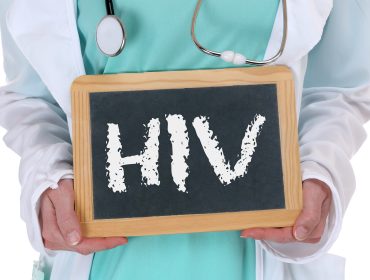My HIV Story: Living With HIV For More Than 20 Years
*The following narrative is from one of our HIV-positive scholarship applicants. It has been minimally changed to remove any identifying information.*
I remember the day I was diagnosed with HIV as clear as it was yesterday. It was December 1995 in Atlanta, Georgia. Back in those days, promiscuous gay men would routinely go in for HIV testing so that they could flaunt their negative status. If you tested positive, it was essentially a death sentence. I remember going in for my follow-up visit to find out the results (results were available after a week). The nurse came in and without missing a beat just said, “You’re positive.”
She then handed me a piece of paper with a graph of a 10-year timeline. The first five years were labeled as the “Asymptomatic Years.” The last five years were labeled as “AIDS.” I was stunned. I had no words. The nurse was completely devoid of any compassion. It was as if that’s all she did all day was walk into the exam room and tell young gay men they had HIV, hand them the 10-year lifespan handout, then walk out of the room. The AIDS epidemic was rampant at that time. Immediately, every one-night stand I had been with over the last three months began flooding through my mind— “Who was it?” “How could I find them to let them know what they had done to me?”— There was no internet back then. Young gay men in Atlanta used to hop from one gay bar to the next. Cell phones were non-existent as well. Everyone wore a pager. I could only leave it to chance as to whether I would ever find the guy who infected me through unprotected sex.
![]()
The only medication available at that time was AZT. The free clinic gave me a few bottles and sent me on my way. From that moment, my life was spent worrying about how long before I would die. Would I end my life before AIDS took over my body? I didn’t want to walk around looking like I had AIDS. I took out three life insurance policies. The insurance companies didn’t require blood tests for policies under $25,000. I also had the heavy burden of informing my family. Then, magically, protease inhibitors came on the scene in 1996; it was a wonder drug! The gay community began touting the possibility of the end of the AIDS epidemic. I was put on a protease inhibitor and my T-cell count immediately went back up. I was a miracle indeed.
Through the years, advances in HIV medicine led to more advanced drug cocktails and the word “undetectable” began to get thrown around. Despite these advances in HIV medicine, the constant diarrhea and extreme fatigue continue to plague me.
As I look back at the 10-year lifespan handout I was given back in 1995, I think about how hard my life has been living with HIV. I make it a point to NEVER disclose my HIV status at work. I don’t want people feeling sorry for me. I also don’t want people feeling afraid of me. Despite everything we know about the spread of HIV, people are still fearful. When I moved to Seattle in 2000 and went to my local clinic to get a simple viral load test, the staff donned full “universal precautions,” wearing a face mask, disposable gown and double gloves. This type of overreaction, even from health care professionals, is why I feel there is a lot more work to be done to dispel the myth that people living with HIV are somehow contagious. There are many draconian laws that were enacted at the height of the AIDS epidemic that are still on the books today. I want to earn my degree and be in a management position so that I can finally come out of the closet and disclose my HIV status in the workplace, so that I can be a role model and not a pariah.
Secure and Confidential
STD testing services
The fastest results possbile - available in 1 to 2 days





